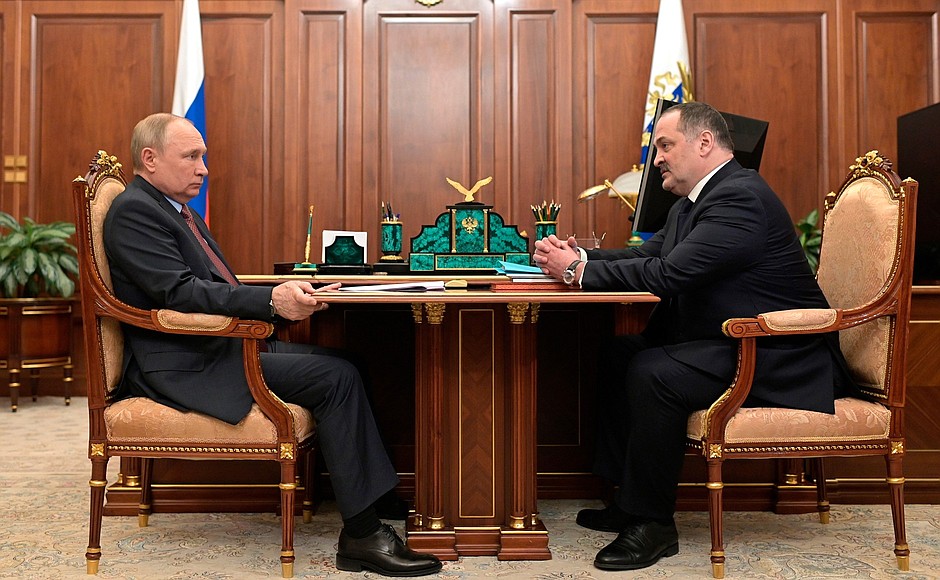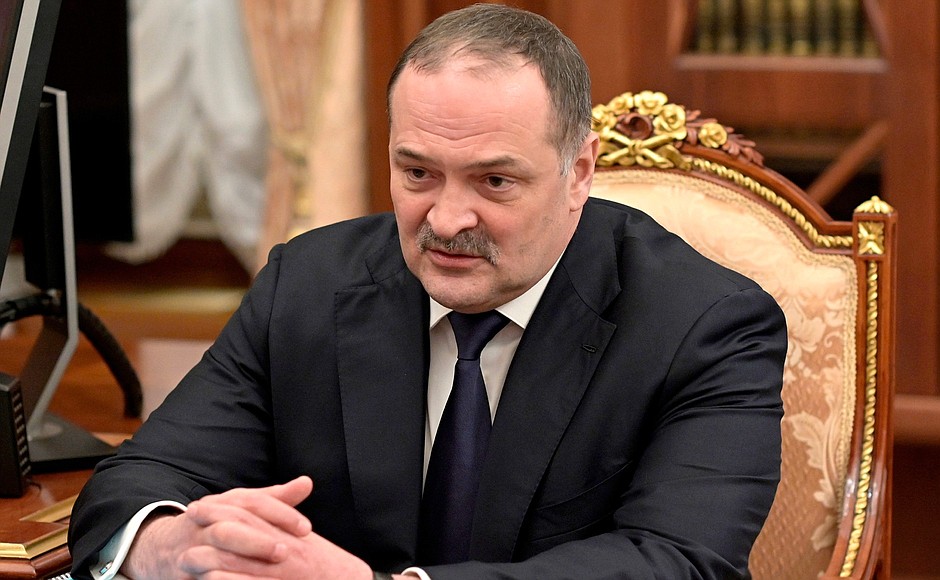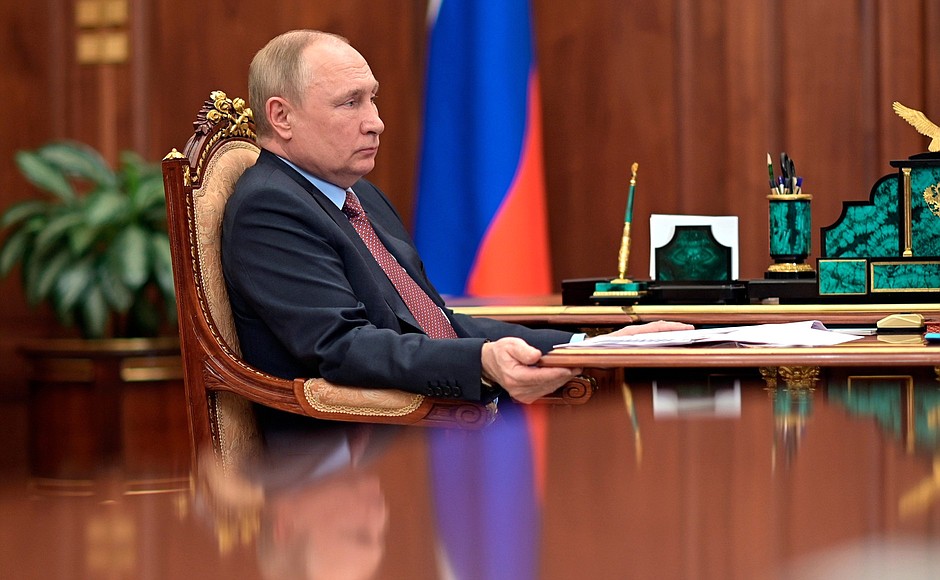Sergei Melikov said the situation in the Republic remained stable, and he started his report by assessing developments related to the COVID-19 pandemic. Daghestan has a positive vaccination rate, and over 90 percent of people in various districts, including high-mountain areas, have already been vaccinated. Information support and public outreach, primarily among senior citizens, are playing an important role. The Head of the Republic noted the role of the Muftiyat. Since the pandemic began, the muftis have worked hard to contain the disease, and they continue to help the authorities in this respect. The President noted that it is necessary to thank the muftis.
Vladimir Putin noted that last year the Republic had posted 16-plus percent industrial growth or much more than the national average (3.1 percent). He inquired how Daghestan had accomplished this.
Sergei Melikov noted that high indicators were not all that mattered. This is the result of tremendous work to rid many enterprises, including industrial enterprises, from the shadow economy’s influence.
Regarding agriculture, Daghestan’s agro-industrial sector has always boasted impressive potential, and the authorities are doing everything possible to restore this potential, the regional head said. This includes issues related to viticulture and the wine-making sector, which receives support through recently approved regulatory acts. Daghestani wine-makers are not the only ones to obtain support; current grape production levels make it possible to supply grapes to Crimea, as well as the Stavropol and Krasnodar territories.
Vladimir Putin noted that Daghestan was the southernmost republic, and that this explained its traditionally well-developed viticulture sector and substantial production volumes. According to Mr Melikov, it is possible to harvest more grapes, including table varieties, and to attain Soviet-era grape reproduction levels.
Vladimir Putin reminded his colleague about the serious problem of water supply. The Head of the Republic said that it was a long-standing problem. Daghestan has not had a water supply scheme until now, and even with water resources, the region does not have the right approach to laying water pipelines and solving issues related to water supply, especially to large settlements, which are the first to suffer. There is also the problem of water disposal and treatment facilities. Many issues concern unfinished construction projects, which began under various state programmes but were not completed for different reasons, including those that require a serious assessment by law enforcement agencies. This assessment is being given, and these questions have been raised today.
However, Sergei Melikov noted that, thanks to the President’s support and the recommendations developed by the Government in line with the President’s instructions, last summer the Republic applied for and secured an infrastructure loan worth 10.5 billion. Work has already begun on the main branch of the water pipeline; in the future it can be developed in large cities. This means it could cover the entire territory of Daghestan. Moreover, the Government support helps modify the previously developed and very expensive sewer project in the Republic’s capital, Makhachkala.
Vladimir Putin also noted employment, one of the most acute problems in the Caucasus, and in Daghestan in particular. He asked Mr Melikov which investment projects deserved the most attention and support in order to create new jobs.
Sergei Melikov said that in 2021 the number of the unemployed dropped thrice. However, he admitted that it was not due to large investment programmes but to efforts to bring various enterprises operating in the shadow economy into the light. Plus, the social loan programme has also made it possible to employ many people. They received initial capital for developing as entrepreneurs, for developing their projects and programmes. However, the general issue of employment in Daghestan is still quite problematic, and the unemployment rate is high.
The Republic counts on investment projects that work in Daghestan and, above all, on the development programme for Derbent. About 70 percent of the 170 billion rubles that should be invested in this programme is private investment. This includes not only housing construction, but also the utilities sector and the development of a tourism cluster in Southern Daghestan. Since Derbent is an attractive city not only for Daghestan, but for all of Russia (as the President noted, it is the oldest city in the country), the Republic expects that the programme will provide new jobs due to this interest in the city.



